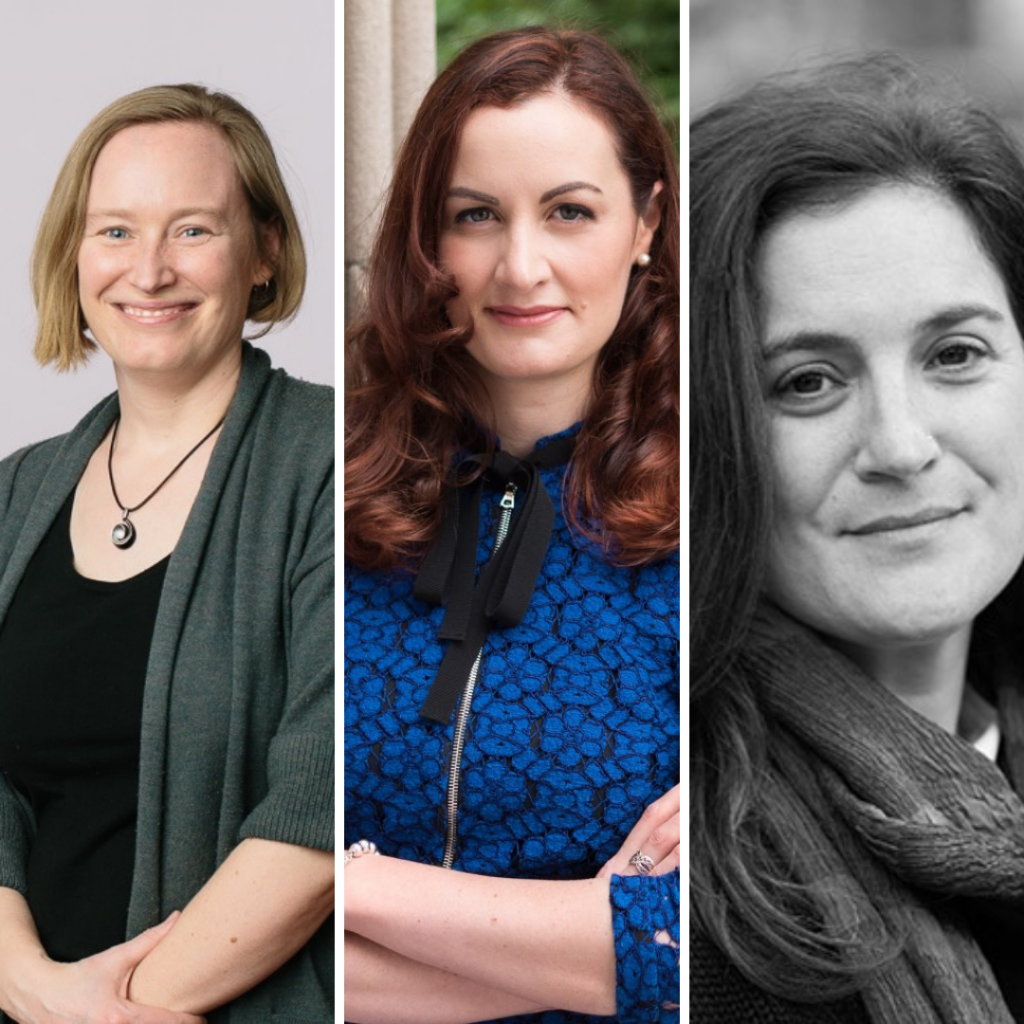Three Out of Five DLSPH Projects Earn Connaught Community Project Awards
September 25/2020
By Françoise Makanda, Communications Officer at DLSPH
Profs Lori Ross, Laura Rosella and Michelle Firestone earned this year’s Connaught Community Partnership Research Program Awards for their projects which tackled social assistance and LGBTQ2S+ community, data building for community wellbeing and knowledge downloading from frontline workers during COVID-19.
The award helps create new collaborative research partnerships between U of T and community partners, fostering access to each other’s unique knowledge, expertise and capabilities on issues of shared interest.

Connaught Community Partnerships Research Program Winners – (left to right), Lori Ross, Laura Rosella and Michelle Firestone
Access to Social Assistance for Members of the LGBTQ2S+ Community
Lori Ross’ two-year project involves partner Queer Ontario to understand members of the LGBTQ2S+ communities experiences’ in accessing social assistance programs in Ontario. Ross and her team have also secured advisory support from organizations like the Senior Pride Network, Sherbourne Health Center and Rainbow Health Ontario.
“We actually have no idea what their experience is like either before or after someone accesses social assistance. There’s no Canadian research on this and very little internationally,” says Ross.
The newly funded project grows out of Ross’ initial CIHR-funded research planning meeting which identified research on access to social assistance as the main priority to inform the creation of a LGBTQ2S+ national research agenda.
“Given the high rates of poverty among LGBTQ2S+ people, we would expect high rates of social assistance use. But, so far, we have no research to determine whether that’s the case,” Ross says. “Since LGBTQ2S+ people experience a lot of challenges accessing other kinds of health and social services, because of various obstacles related to homophobia and intersecting forms of oppression, it’s important to examine how those factors might come into play when accessing social assistance as well.”
Measuring Wellbeing
Laura Rosella and her team will partner with Toronto Public Health (TPH) and partners within the cities of Toronto to quantify ways researchers can examine community well-being. Variables include concepts related to life satisfaction, community belonging and social isolation.
“We don’t do a lot of surveillance when it comes to issues like the well-being of our community, says Rosella. “We measure risk factors, and we measure diseases. But we are starting to appreciate how important it is to measure well-being, such as how connected people feel to their community, on a routine basis and how it impacts population health outcomes.”
The team’s initial work is to determine the technical elements and data sources they need to develop sets of variables to measure community well-being and community wellness. Rosella says they’re looking at different data sources and even innovative ways of measuring them.
The work was postponed because of the pandemic, but she is convinced it’s needed now more than ever. The project will start this month.
“People are realizing how important their community is to their health,” she says. “After many months inside, we’re realizing that it’s helpful to have some green space, to have social connections, to go outside and to be engaged with our community.”
COVID-19 Knowledge from Frontline Workers
Michelle Firestone’s project gathers experiences and knowledge of community workers during the COVID-19 pandemic and their teachings and solutions for service and policy responses.
The work expands on a recently-funded Toronto COVID-19 Action Initiative grant called MARCO that is being co-led by IHPME Prof. Ahmed Bayoumi and Firestone. It is examining the effects of COVID-19 responses on marginalized populations, with a focus on communities and service providers.
Researchers will use reflexive journaling and existing social media platforms to uncover the experiences and expertise of community workers and frontline workers who provided services for those experiencing homelessness and those who use drugs.
“Embedded in research processes are power imbalances and hierarchies that marginalize the expertise and knowledge of peers and people with lived experience,” says Firestone. “Data collection methods such as reflexive journaling will allow peers to provide stories, observations and narratives in diverse and adaptive formats during these challenging times.”
Too often, public health decision-making is driven by political and institutional systems without acknowledging or prioritizing on-the-ground expertise says Firestone. Community workers’ recommendations are critical to curbing the spread of COVID-19 and minimizing health and social harms for those who are most vulnerable